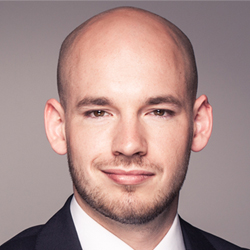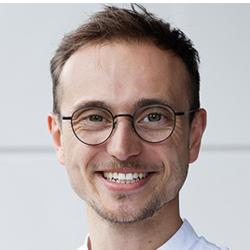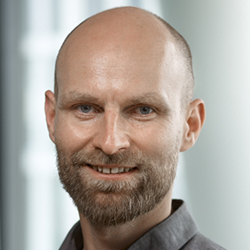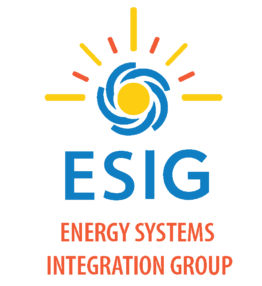
- This event has passed.
G-PST/ESIG Webinar Series: STATCOM Strategy and Application in East Germany
July 14, 2021 @ 4:00 pm - 5:00 pm EDT

STATCOM Strategy and Application in East Germany
Wednesday, July 14 – 4:00 – 5:00 p.m. (eastern US)
Featured Speakers:
Cornelius Heck, Team Leader for Stability Analysis and Large Projects in Strategic Grid Planning, 50Hertz Transmission GmbH
Dr. Florian Sass, Electrical Engineer for Operational Concepts, 50Hertz Transmission GmbH
Roman Hinz, Asset Management, 50Hertz Transmission GmbH

Cornelius Heck
Webinar Abstract: With the political decision to phase out all coal, lignite and nuclear power plants within the next 10-15 years, Germany faces a massive disruption in generation technology. So far the mentioned conventional power plants provide the majority of non-frequency ancillary services. This webinar will give an overview of the challenges posed upon the East-German Transmission System. Also it will present the current strategy to overcome said challenges with special regards to voltage regulation and inertia provided by grid-forming STATCOM. Hereby the webinar will take you on a journey from current system operation experience, over strategic grid-planning need identification to asset specification.
Moderator: Charlie Smith, Executive Director, ESIG
Registration Cost: FREE
Q&A Session: We will be using the slido platform for Q&A. Please submit your questions and follow-along during the event at this link.

Dr. Florian Sass
About the Speakers:
Cornelius Heck joined 50Hertz Transmission GmbH in 2016 as part of the medium term planning team in the system operation. In 2013 and 2015, he received his B.Sc. and M.Sc. in Industrial Engineering from BTU Cottbus University, respectively. In 2020 he assumed the position as team leader for the large projects and stability analysis team in the grid development department. This team manly focusses on the system planning of HVDC and offshore connections and assesses the influence of increasing injection from inverter based sources.
Dr. Florian Sass received his B.Sc. in Electrical Engineering at HS Mannheim and his M.Sc. in Electrical Power and Control Engineering at Technische Universität Ilmenau in 2015. In the same year he joined the power system group as a research fellow. He received his PhD on the topic of curative measures in hybrid AC-HVDC-Systems in 2019. After that, he joined the system operation department of 50Hertz Transmisson GmbH as a member of the team for technical concepts. He is the expert for HVDC, FACTS and voltage control processes.

Roman Hinz
Roman Hinz received his diploma as industrial engineer for electrical engineering in 2011 at the “Otto von Guericke University of Magdeburg” with the thesis of overlay grids and HVDC control schemes. From 2011 to 2014 he was supporting the TSO TenneT as technical consultant (Fichtner) for the offshore HVDC project DolWin1. Afterwards he worked for ALSTOM / GE Grid as Service Engineer from 2014 to 2018 in the offshore HVDC project DolWin3 where he gained site experience and received in 2018 the position as senior site manager and HVDC operator during commissioning. Since 2019 he joined 50Hertz Transmission GmbH as asset manager for HVDC and FACTS. At this position he is responsible for the current STATCOM tender package incl. its specification.
About G-PST Consortium
The chief executive officers of National Grid Electricity System Operator UK, California Independent System Operator (CAISO), Australia Energy Market Operator (AEMO), Ireland’s System Operator (EirGrid), and Denmark’s System Operator (Energinet) are champions in developing the consortium mission and activities. Importantly, these system operators are leading a Research Agenda Group to identify common, cutting-edge research questions that can inform large- scale national research and development investments. Relevant results and lessons from this process will be broadly shared for learning across all countries. The Consortium is also partnering with around 10 emerging economy and developing country system operators from Africa, Asia, Latin America and Eastern Europe who will also guide the G-PST vision and collaborate with the Consortium to advance power system transformation with a focus on technical collaboration, peer learning and exchange, and workforce development to support local PST priorities.
A core team, including the Energy Systems Integration Group (ESIG), Imperial College London, Council of Scientific and Industrial Research (CSIR), Fraunhofer Cluster of Excellence for Integrated Energy Systems, National Renewable Energy Laboratory, Latin American Energy Organization (OLADE), IEEE, Electric Power Research Institute (EPRI), Commonwealth Scientific and Industrial Research Organization (CSIRO), the Danish Technical University (DTU), and ASEAN Center for Energy, is actively developing the consortium and will be engaged in implementation of technical work as well as coordinating specific pillars.
International agencies and multilateral and regional development banks, including World Bank, United States Agency for International Development (USAID), German Agency for International Cooperation (GIZ), International Energy Agency (IEA), Asian Development Bank (ADB), European Bank for Reconstruction and Development (EBRD) and others are serving as key implementing partners to ensure the consortium complements and reinforces existing programs.
For more information on the G-PST visit https://globalpst.org/.

